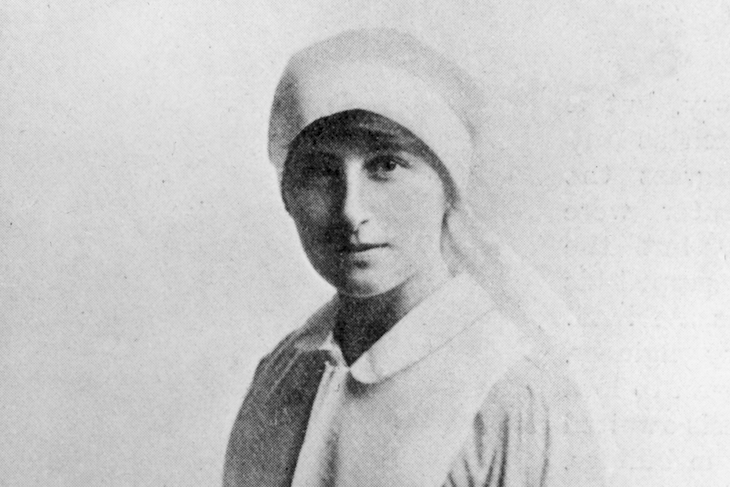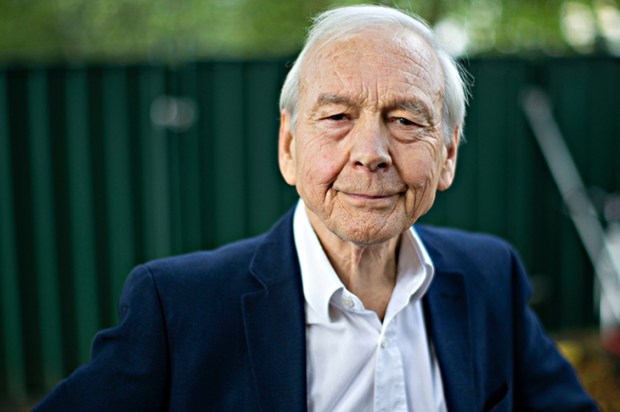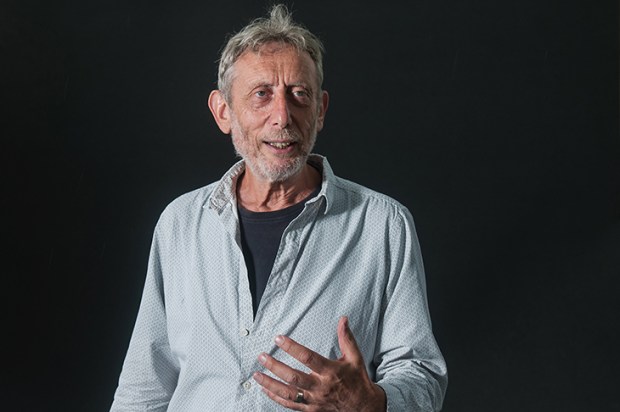I don’t know which day Rod Liddle travelled down from the northeast and found nothing but women’s voices cluttering up Radio 4, as he wrote about in last week’s magazine. But his description is not one I recognise. If anything we still hear too much from male commentators, male presenters, male writers, male comedians. In recent years, for instance, the gender-balance of contributors to the Today programme has improved from the 18 per cent of female guests just a decade ago, but there’s still a long way to go before we need to apologise for wanting to hear more from women.
Very often they speak truth to power (because not in power themselves) as did Vera Brittain in her searing account of the impact of the first world war, Testament of Youth. She lost all the young people close to her, including her brother and fiancé, killed in terrible conditions (her brother had already been wounded in Flanders and went back only to be shot dead by a sniper in Italy): ‘Everything that had hitherto made up my life had vanished.’ She herself gave up the chance of an Oxford education to become a nurse, helping the wounded on their return from the battlefields.
In Edward Brittain and the Forgotten Front (produced by Sarah Shebbeare), Allan Little travelled to Asiago in northern Italy to the spot where it is thought Brittain lost his life while British troops were fighting alongside Italians against the forces of Austria-Hungary. With him was Edward’s niece, Shirley Williams, the veteran politician and outspoken advocate for women. Her mother Vera’s life was shaped by what happened on that mountainside, says Williams; and when she died she asked that her ashes should be scattered in the small cemetery where Edward was buried. She was, says Williams, ‘more than an Englishwoman’, her heart always with her brother in Italy.
Vera and her friends were very young, and very idealistic, growing up in comfortable middle-class England, tennis parties in the summer, musical evenings in the winter listening to records by Caruso. When war was eventually proclaimed they were not frightened by what it presaged. On 3 August 1914 Vera wrote in her diary, ‘Today has been far too exciting… one of the most thrilling I have lived through.’ She was looking forward to ‘Armageddon in Europe’.
She even persuaded her parents that Edward, their only son, should enlist. That’s what makes Testament of Youth so poignant, as Brittain exposes how their naivety was brutally crushed. The book became, says Williams, ‘the voice of that depleted generation’.
Even sadder is the discovery that Edward possibly invited his death at the hands of the sniper, acting recklessly because he knew he was facing court-martial, accused of having homosexual relations. It was Vera who pursued the facts after suspecting that something was being withheld from the family. She then spent the rest of her life campaigning for peace.
Roy Williams’s afternoon-drama series for Radio 4, The Interrogation (directed by Mary Peate), featuring DCI Max Matthews (Kenneth Cranham) and DS Sean Armitage (Alex Lanipekun), returned last week and is still available on catch-up. The format is so straightforward, just three distinct scenes, with just one or two characters apart from Max and Sean, but Williams is such a craftsman that each episode becomes compelling, the voices of his characters so believable they’re hard to get out of your mind. Each drama begins with a monologue, usually from the perpetrator, but sometimes the victim, setting the scene, putting us in the picture.
In episode three, Heather, we get inside her head in the first three minutes as she reveals, simply and briskly, the key facts: her little girl, her troubled relationship with the father, her time in prison. Then the drama switches to the interrogation itself, with Max and Sean criss-crossing questions to confuse and baffle and ultimately breakdown the suspect, working together as a team, each talking in telling phrases, not a word wasted.
‘Why don’t you tell us what this is about?’ says Sean. ‘Because I sense you want to. Something else is going on.’
‘You’re a bit out of your patch, Heather,’ adds Max.
Naming is always important to them both, identifying, giving their interviewees the sense they are being listened to and heard, whether the guilty or the victim. In Heather’s case she’s angry about being black in a white person’s world, about the callous reporting of a school tragedy in a ‘poor’ area, about being rehoused in a damp bedsit miles away from where she grew up.
‘All you’ve given me is some gibberish about the election, and Donald Trump…,’ an exasperated Max chips in.
But Heather’s anger haunts, playing on the mind. What she says has echoes of Grenfell Tower. There’s a subtext here. This may be a police procedural but it carries with it a weighty punch. Williams makes it sound so natural, as if putting that quickfire repartee on to the page is easy. He’s helped by the spot-on timing of Cranham and Lanipekun (this is the fourth series they’ve worked on together) and Jo Martin who plays Heather. But it’s all in the writing — and not a moaning Minnie within earshot.
Got something to add? Join the discussion and comment below.
Get 10 issues for just $10
Subscribe to The Spectator Australia today for the next 10 magazine issues, plus full online access, for just $10.
You might disagree with half of it, but you’ll enjoy reading all of it. Try your first month for free, then just $2 a week for the remainder of your first year.














Comments
Don't miss out
Join the conversation with other Spectator Australia readers. Subscribe to leave a comment.
SUBSCRIBEAlready a subscriber? Log in